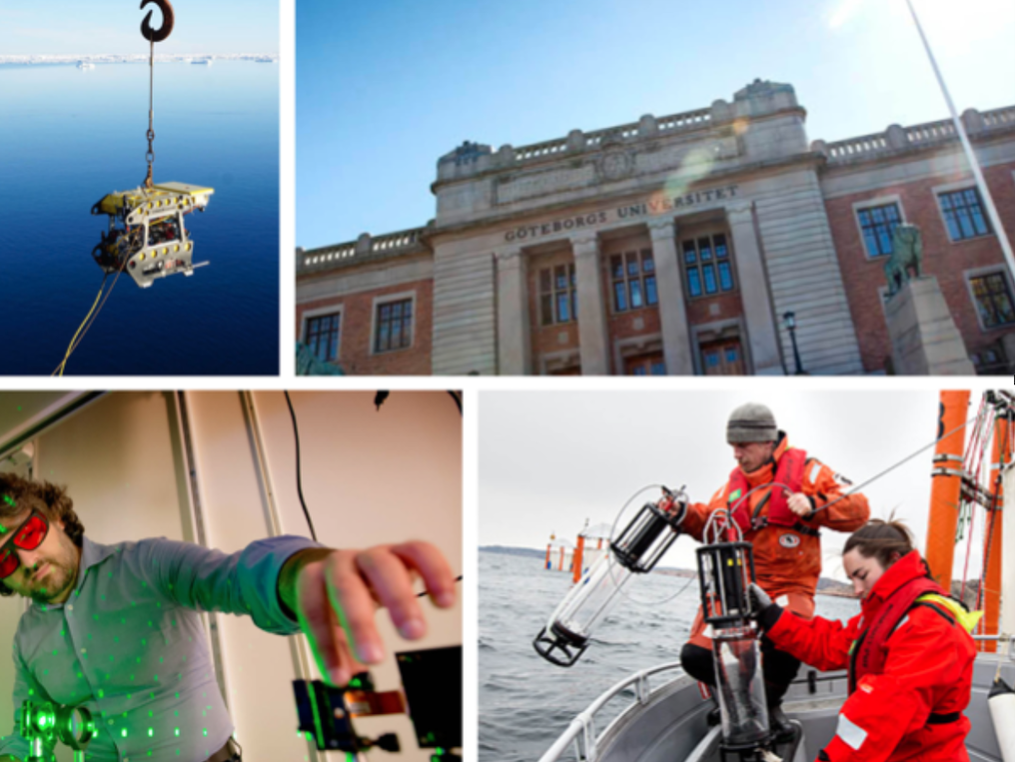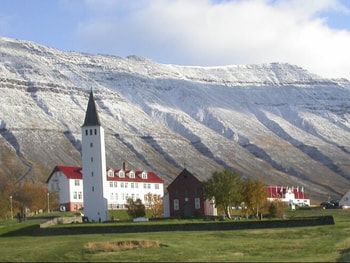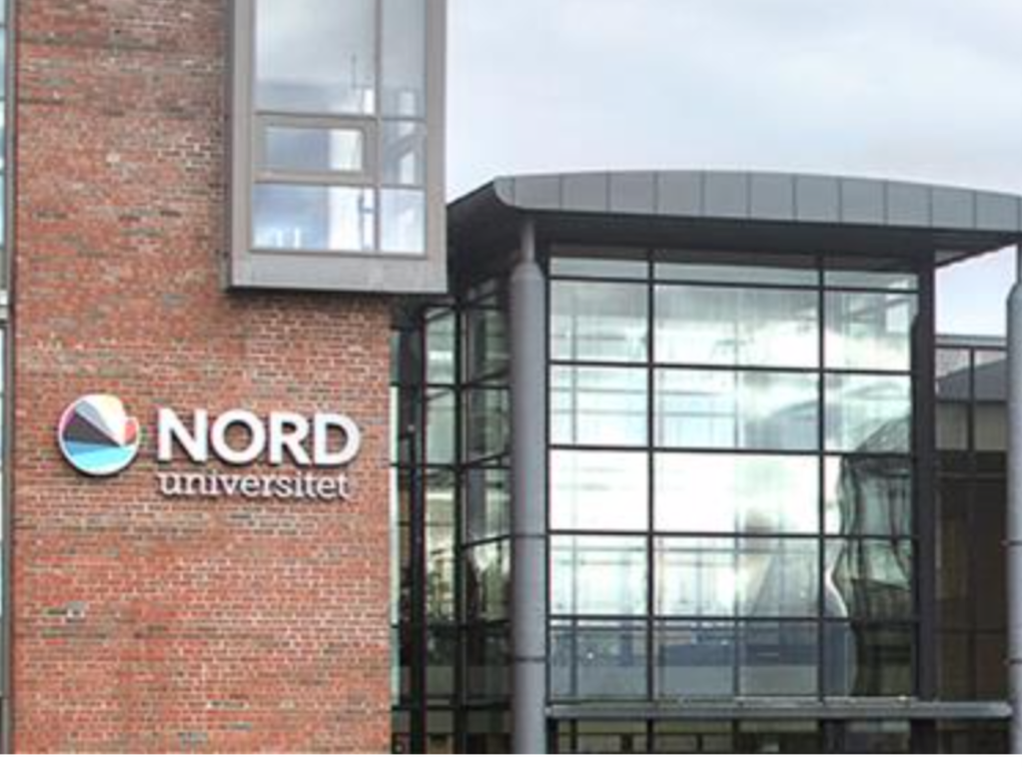THE NORDIC MASTERS PROGRAM IN PRODUCTION AND
UTILIZATION OF MARINE BIORESOURCES
A collaboration of:
- University of Gothenburg, Sweden
- Nord University, Bodø, Norway
- Hólar University, Iceland
Introduction
The Nordic Master Program in Sustainable Production and Utilisation of Marine Bio-resources, MAR-BIO, is a research based Masters program collaboratively offered by three Nordic Universities: University of Gothenburg, Nord University, Bodø and Hólar University.
The MAR-BIO program aims to:
- Facilitate student mobility between the Nordic countries and exchange of knowledge and research between the Consortium Universities.
- Combine competences from the Nordic countries in order to educate the next generation of professionals within the area of marine circular economy and utilization of marine bioresources.
MAR-BIO target inter- and transdisciplinary approaches to the interactions between fisheries, aquaculture and production and utilization of marine bio-resources with a special focus on entrepreneurship. This will prepare you, as a student, for a wide array of job opportunities, as PhD student or within the industry, within the area of circular bio-economy and blue growth.
Program Description
The MAR-BIO program is a 2 year program of 120 Credits
The first year will start with one mandatory hybrid course of 15 Credits, jointly taught by the three Nordic universities. This mandatory introductory course will include three, one week sections where all students gather at one of the Nordic partner Universities for an intensive campus course. The students will be registered at the Consortium University of their respective admission and the successful completion of the Programme leads to a double/multiple degree, i.e. separate degree certificates from each Consortium University where the student has studied. The student should apply for the degree at least at two Consortium Universities for the Nordic Master.
Thereafter the students are free to choose courses (5-30 credits) for the rest of the first year from a “smorgasbord” of relevant course offered by the Nordic partner Universities as well as by Chalmers and UNE.
The second year of the MAR-BIO program must be taken as an individual research project course - the degree project. Joint seminar series and shared activities will be planned throughout the program to help the students communicate and create group cohesion. This will facilitate their academic integration and identify the added value of being part of a unique, international, interdisciplinary Masters programme.
The degree project, of 60 credits, should be conducted at one of the Consortium Universities or at one, to the Consortium University associated partner from industry, authorities or public body. The local master thesis rules and procedures of the chosen university will apply.
In preparation for the degree project all students must have taken a relevant methodology course, either during their bachelor or during the first year of the MAR-BIO programme.
After successful completion of the program, students shall be awarded Master Degrees from at least two of the Consortium Universities where they have been admitted. The Consortium Universities will each issue a degree certificate (including a diploma supplement). A diploma for the Nordic Master will accompany these student degree certificates.
Requirements
A requirement for a Nordic Master’s program is a mobility of at least 30 ECTs for all students. This will be fulfilled by course work at one or more of the partner universities that is not the university where the students registered to the program and will be assured through the establishment of an individual study plan (ISP) for each student.
The student have the possibility to structure the program in a natural science profile, a social science profile, or a mix, based on the elective courses chosen during the first year. An ISP will be established, in communication between the student and a study counsellor. This is to support and guide each individual student in their course choices and to ensure that the student fulfil the requirements for a degree from two or more of the Consortium Universities.
The master’s program in Sustainable Production and Utilisation of Marine Bio-resources is a program at the advanced level and is intended as a continuation of a Bachelor degree (180 credits) in natural science, social science or arts.
There is one mandatory course (10 credits) needed for the degree and 60 credits should be in the form of a degree project at the advanced level. Of the remaining 50 credits of elective courses to be included in the degree, at most 30 credits can be at the basic level. The programme leads to a Degree of Master of Science with a major in Sustainable Production and Utilisation of Marine Bio-resources.
The student have the possibility to structure the program in a natural science profile, a social science profile, or a mix, based on the elective courses chosen during the first year. An ISP will be established, in communication between the student and a study counsellor. This is to support and guide each individual student in their course choices and to ensure that the student fulfil the requirements for a degree from two or more of the Consortium Universities.
The master’s program in Sustainable Production and Utilisation of Marine Bio-resources is a program at the advanced level and is intended as a continuation of a Bachelor degree (180 credits) in natural science, social science or arts.
There is one mandatory course (10 credits) needed for the degree and 60 credits should be in the form of a degree project at the advanced level. Of the remaining 50 credits of elective courses to be included in the degree, at most 30 credits can be at the basic level. The programme leads to a Degree of Master of Science with a major in Sustainable Production and Utilisation of Marine Bio-resources.
How to apply
To apply for the master’s program in Sustainable Production and Utilisation of Marine Bio-resources, please go to any of the following admission sites:
University of Gothenburg: universityadmissions.se.
Nord University, Bodø: Informasjon om opptak
Holar University (contact: [email protected] )
The program applies separate admission rounds at each Consortium University according to national and local requirements. All applications passing the requirements will be sent to the program committee together with the letter of intent for discussion and suggestions on students to be admitted. Admission of students will thereafter be decided by each Consortium University. Student complaints pertaining to admission decisions are handled by each Consortium University according to national and local rules and procedures. The Programme follows the local tuition fee policy of each Consortium University. Student Union fees are charged according to the regular procedures of each Consortium University.
When applicable, students will pay tuition fees, student union or registration fees, directly to the universities involved in their study track according to the universities’ regulations. Total fees charged will vary accordingly. Under no circumstances shall a student be charged double fees for any part of the program.
The MAR-BIO program have Erasmus agreements between all Consortium Universities that are open for all Programme students to apply. Furthermore there will be possibilities to apply for mobility grants specifically for the three sections of intensive campus courses during the mandatory course.
The application route for the individual courses, which are part of the master's programme, are according to the national and local rules of the Consortium University that offers the course.
See information on the MAR-BIO program at our two collaborative universities
University of Gothenburg
Nord University, Bodø
University of Gothenburg: universityadmissions.se.
Nord University, Bodø: Informasjon om opptak
Holar University (contact: [email protected] )
The program applies separate admission rounds at each Consortium University according to national and local requirements. All applications passing the requirements will be sent to the program committee together with the letter of intent for discussion and suggestions on students to be admitted. Admission of students will thereafter be decided by each Consortium University. Student complaints pertaining to admission decisions are handled by each Consortium University according to national and local rules and procedures. The Programme follows the local tuition fee policy of each Consortium University. Student Union fees are charged according to the regular procedures of each Consortium University.
When applicable, students will pay tuition fees, student union or registration fees, directly to the universities involved in their study track according to the universities’ regulations. Total fees charged will vary accordingly. Under no circumstances shall a student be charged double fees for any part of the program.
The MAR-BIO program have Erasmus agreements between all Consortium Universities that are open for all Programme students to apply. Furthermore there will be possibilities to apply for mobility grants specifically for the three sections of intensive campus courses during the mandatory course.
The application route for the individual courses, which are part of the master's programme, are according to the national and local rules of the Consortium University that offers the course.
See information on the MAR-BIO program at our two collaborative universities
University of Gothenburg
Nord University, Bodø




